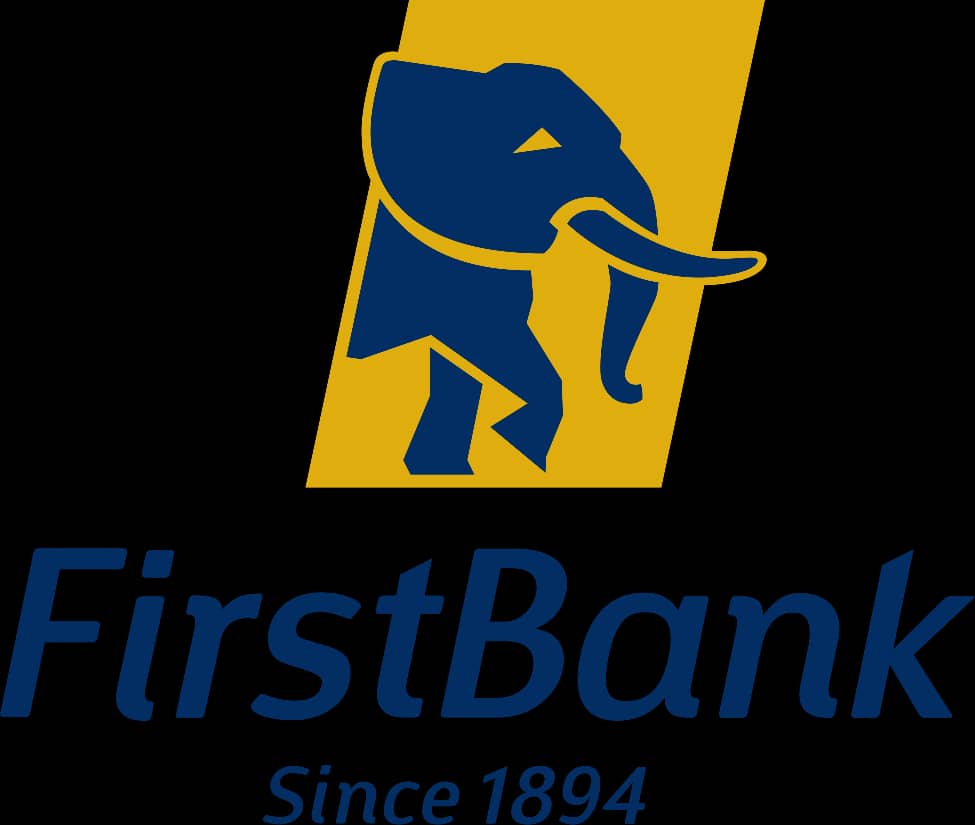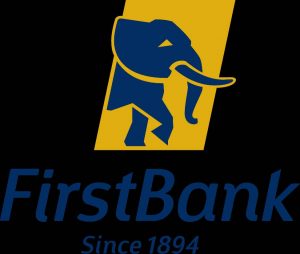Business
FirstBank: Nigerias Premier Eco-Friendly Financial Brand

FirstBank: Nigerias Premier Eco-Friendly Financial Brand
Je

First Bank Plc
remiah Agada
Sponsored by: H&H
As the world gears up to celebrate the World Environment Day (WED), Brand Communicators focus on Eco-Friendly Brands in the Nigerian market falls on Nigerias premier and perhaps the strongest financial institution, First Bank of Nigeria Limited. The focus is on the Banks environmental policies and its impact on the global environmental issues.
This brings to fore the importance of environmental sustainability in our world today. Environmental sustainability is one of the biggest challenges and most important targets of the present times. Stakeholders (researchers, academicians, scholars, governments and non-government organizations involving individuals, communities, countries, and the continents, are increasingly focusing their attention on how to tackle the challenges associated with driving environmental sustainability. Key stakeholder concerns include the constant exploitation of the environment due to economic development. While the current generation is enjoying the fruits of economic development, they tend to be oblivious of the uncertainty and dangers that future generations would confront as a result of scarce natural resources and polluted environment. It is therefore, our responsibility to leave the planet as a self-sustainable system providing equal opportunities of survival not only to our future generations but also to all other species co-habiting with us.
In Nigeria, studies have shown that various sectors of the economy are vulnerable to climate change. These include human settlements and health; water resources, wetlands and freshwater ecosystems; energy, industry, commerce and financial services; agriculture, food security, land degradation, forestry and biodiversity; coastal zone and marine ecosystems.
Because of the seriousness of climate change and the impact it poses to the environment, an organization like First Bank of Nigeria Limited is leaving nothing to chance in ensuring an eco-friendly society. Its recognition of the environmental and social impacts of its operations has made it adopt policies and procedures that minimize negative environmental and social impacts.
In doing business, the Bank, which is Nigerias first and arguably its most prestigious, takes cognizance of potential environmental risks with a view to nipping them in the bud. This it has done by constant interactions with stakeholders, driving sustainable insurance and putting necessary frameworks in place towards ensuring that its actions as a corporate entity does not impact negatively on the environment.
As such, the sustainability of the societies and physical environments in which the Bank operates are critical to its own sustainable success. Therefore, the Bank has shown over the years that it is committed to making positive contribution wherever it does business while avoiding or minimising any direct or indirect negative impact on communities and the environment resulting from its activities, beyond its responsible lending and investment efforts.
The acknowledgement of the fact that its environmental impacts can be indirectly linked to climate change and its global effects has led the bank to adopt an approach to environmental sustainability which is two-fold based on its direct and indirect impacts. The approaches to reducing the direct impacts of its operations include approach to minimising carbon footprints and carbon offsetting; work towards carbon neutrality as well as promote wildlife and biodiversity conservation and preservation.
In minimising waste, the Bank works to improve energy efficiency in its data centres and offices as well as reduce air travels and implement safe paper use initiatives. It also increased the use of conference calls for meetings as against attending physical meeting schedules thereby minimizing fuel consumption and carbon emission from vehicles. Its Going Green efforts have also seen the Bank purchase renewable energy; promote tree planting initiatives and the indirect impact of its activities focuses largely on responsible lending.
The Banks key objectives of minimizing carbon footprints through the planting of trees, creating awareness among school children of the need to preserve wildlife and biodiversity, developing and educating environmentally conscious students through partnerships with reputable NGOs and institutions, are huge. The challenge in implementing this project is not just in identifying suitable locations with the right soil and climatic conditions for tree planting, but also ensuring students participation.
These objectives and FirstBanks responsible approach to protecting the environment has seen it partner with Nigerian Conservation Foundation (NCF), Nigerias premier non-governmental environment conservation foundation dedicated to nature conservation and sustainable development in Nigeria. Its on-going partnership with the NCF has seen it actively support annual activities promoting conservation and preservation of wildlife and biodiversity.
The FirstBank Conservation Initiative is part of our long-term approach to promoting sustainability, which involves minimising our direct and indirect impacts on the environment. And the success of this initiative is dependent on our meaningful engagement with our stakeholders.
With its huge expertise in environmental issues, the Bank found a worthy and perfect partner in the NCF to help implement this programme successfully. The NCF used its experience and influence to engage the various stakeholders to support the programme. This included utilising its conservation clubs, which provided educational sessions for the students on the importance and benefits of conservation and supporting biodiversity. The subsequent enthusiastic participation of the students, and the encouragement they received from the Ministry of Education and school authorities, enabled the programmes objectives to be achieved.
So far, 240 trees have been planted at the Lagos State Civil Service Model College Igbogbo in Ikorodu, and Evboesi Mixed Secondary School, Benin City. More than 1,000 environmental sustainability champions have also been appointed in these locations. These champions are young people who look after the trees and ensure that they are adequately cared for to help the bank achieve its afforestation goals. “The planting of trees is just part of our efforts to contribute to Nigerias green economy and to combat deforestation/desertification, while recognising the key role of children and young people in the sustainability agenda, the Bank in a statement disclosed.
Through its partnership with Junior Achievement Nigeria (JAN), FirstBank sponsored the National Company of the Year (NCOY) Competition. The competition is an extension of the COY programme that brings secondary students together to form a company, choose a business name and elect officers to oversee operations of the company for the programme duration. It teaches students to put theory into practice in order to fully understand what financial literacy and entrepreneurship is. At the end of the programme, the students that complete the programme successfully, compete in the regional competition and represent their school in the National Company of the Year competition in Lagos. In 2020, the New Phase from Brookstone Secondary School, Port-Harcourt, Rivers state emerged winner, producing an eco-friendly block. The eco-friendly construction blocks were made from plastic waste. These sustainable blocks are the next wave of sustainable construction.
Beyond the initiatives above, responsible lending remains one of the strategic pillars in delivering the sustainability goals of the FirstBank Group. FirstBank has put in place an Environmental, Social and Governance Management System (ESGMS) to help the Bank integrate environmental social and governance considerations into its decision-making processes. This includes an ESG policy and procedures for screening transactions. The ESG policy is based on existing policy documents and international best practice, while procedures to screen transactions are aimed at conducting ESG due diligence on potential transactions. These are based on Central Bank of Nigerias Sustainable Banking Principles, IFC Performance Standards, and international best practice and are tailored to FirstBanks procedures, risk management framework, risk appetite and tolerance, and adapted to its strategic objectives.
The key objective of this policy is to ensure that all the transactions that FirstBank is considering funding, include adequate provision for actions necessary to prevent, control and mitigate negative impacts on the environment and communities, and improve environmental quality.
With this, FirstBank has shown its commitment to integrating social and environmental principles in all its operations; promoting good corporate governance and ensuring social and environmental considerations are included in the business decision making; reviewing and managing potential social and environmental risks in its lending and investment processes and activities and reviewing all borrowers against the criteria like exclusion list; the International Finance Corporate Performance Standards, and other applicable international standards as well as the Nigeria Sustainable Banking Principles (NSBP) requirements.
Others initiatives are, providing constant education and training for all staff on issues of environmental and social responsibility relevant to the business; regularly communicating to all stakeholders on progress of commitments including achievements, challenges and future direction; continuous improvement on the way in which it identifies, assesses and manages Environmental, Social, and Governance (ESG) risks within its businesses.
The successful and productive implementation of the ESGMS has propelled the bank to integrate the associated checklist (which is usually completed by a relationship manager and verified by an analyst against the EIA report), into the banks credit application platform designed for reviewing credits. The goal is to ensure efficiency through automation as relevant implementation documents such as the environmental, social and governance risks screening checklist will be fully automated.
These initiatives over the years and activities have shown that environmental sustainability remains a key corporate responsibility & sustainability focus for FirstBank.
